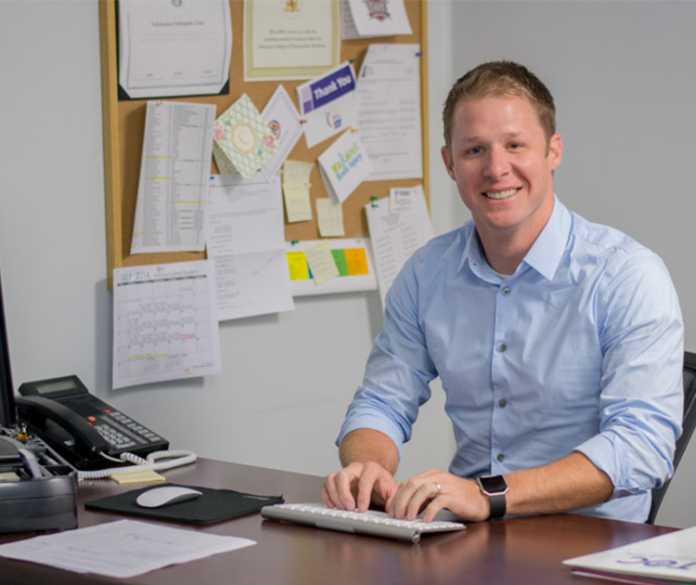If you live in the southeastern region of the United States and follow college sports at all, you’ve heard of the Florida State University Seminoles. You probably know some of the players, if not all. You might even know who the coaches are. There’s one man, however, you may not have heard of yet. I recently had the pleasure of meeting Dr. Scott Burkhart, the neuropsychologist for the Seminoles. He diagnoses, monitors, and treats concussions and other head injuries for the team.
So what does a neuropsychologist actually do? Basically, they deal with how the brain and our behaviors are connected. When I asked Dr. Burkhart why he opted for the psychology route, he said, “I wanted a field with more unknowns than medicine.” Considering how new the field of concussion study is, he made an excellent choice. Recently, chronic traumatic encephalopathy (CTE) has become one of the most well known phrases pertaining to concussions, especially concussions related to sports. CTE is a degenerative disease of the brain that occurs when a person is repeatedly subjected to impact-related brain injuries and lets them go untreated. We’ve known about CTE occurring in boxers, like Muhammad Ali, since the 1920s, but in those days we called it dementia pugilistica. Symptoms of CTE can be very similar to those of Alzheimer’s and dementia, but manifest in people much younger than the typical Alzheimer’s patient.
Dr. Burkhart sees between 3,000 & 5,000 concussions per year, with about 750-1,000 of those happening during the fall. He sees concussions in cheerleaders and people who play soccer, volleyball, ice hockey, football, and lacrosse. In his line of work, he rarely sees “repeat concussions,” or concussions that occur back-to-back with no time for the brain to heal in between. These are the concussions that can lead to CTE. For many, CTE has a scary and heavily negative connotation. Dr. Burkhart has a slightly different stance on the subject. When I asked his opinion about the public’s understanding of CTE and the causes of the disease, he said, “It’s not as scary as it has been presented.” One of the reasons concussions are so much more prominent now is because the symptoms are often visually manifested, meaning our eyesight is affected. Kids & Millenials spend a large portion of the day looking at some kind of screen, so when our eyes don’t work we know about it.
The next question is, can we prevent these concussions? According to Dr. Burkhart, other than “wrapping our heads in 10 inches of bubble wrap,” there’s no real 100% effective prevention for concussions. Helmets are great, but they don’t keep the brain from moving inside the skull, which is what causes concussions. Education is the first line of defense. When concussions happen, go to the doctor. More importantly, go to the right doctor. Concussions are brain injuries and should be checked out by a specialist. As Dr. Burkhart said, “I wouldn’t take my 4 year old to urgent care for a cavity.”
Dr. Burkhart hails from Oregon, but now lives in Tallahassee with his wife and two sons. From a young age, he has had a love for sports. He spent his childhood on the soccer and baseball fields, and like many other young American athletes, he fell in love with the lifestyle. He said one of his favorite things about working in his field and with the Seminoles is that he still gets to be in the athletic world. “I can still remember the way the grass smelled,” he said, with the air of someone talking about their first love. Eventually, Dr. Burkhart’s love for sports meshed with an interest in psychology. “I wanted to know how psychology and sports meshed.” The joining of the two passions lead him to earn his Bachelor’s degree in Psychology and his Doctorate degree Clinical Psychology from George Fox University. After graduating with is PsyD, he moved to Pennsylvania to do his fellowship in the sports concussion program at the University of Pittsburgh Medical Center. Now he spends his professional time researching, preventing, and treating concussions while working for the Seminoles and directing the Regional Concussion Center at Tallahassee Orthopedic Clinic, and of course, enjoying the smell of the grass.
ITG Web Content
For The Smell Of The Grass
Written by Rebecca Stroud
Photo by Dr. Burkhart’s Office



